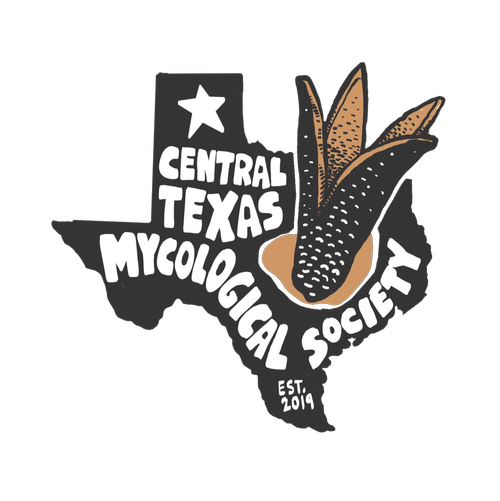WHEN: September 28, 2023 at 7 pm
WHERE: Really Small Museum at 1311 Harvey St
Kick off and exhibition for the MycoCyco bicycle ride! Learn about foraging mushrooms, taste fried chicken-of-the-woods.
Space limited. Registration required. Donations accepted.
ARTIST STATEMENT
Fungi are the oldest and largest organisms on the planet, yet are under recognized for their beneficial role in ecosystem health and the diverse cultural practices they inspire around the world. In Central Texas fungi have been used for centuries in Indigenous and traditional contexts, as a material and muse for artistic practices, and as a useful ally in building healthy soils and food. The mission of Central Texas Mycological Society (CTMS) is to celebrate these historical and recent practices, and to highlight how human and more-than-human communities use fungi to benefit their health, local soils and ecosystems, for food and gardening, and a range of social-cultural activities.
Seeking Laetiporus exhibition at Really Small Museum celebrates the annual emergence of a unique and delicious edible mushroom which fruits across Central Texas known as chicken-of-the-woods (Laetiporus). To celebrate CTMS is partnering with the Odditree Society for the third annual Myco Cyco a 6-mile bicycle ride through Central Austin to observe the beautiful, heritage and sometimes odd oak trees and forage for mushrooms. The exhibition features a collection of specimens and artifacts exploring the history and ecology of Laetiporus and other macrofungi.
Artist Bio(s)
Angel Schatz radiates passion for understanding the ecosystem of central Texas and making mycology education accessible to anyone who shares interest. Formally an experience designer and animator, she hopes to inspire more people to dial into the wood-wide-web.
Christopher Kennedy is the associate director at the Urban Systems Lab, The New School and lecturer in the Parsons School of Design. Kennedy’s research focuses on the social-ecological benefits of urban plant communities, multispecies thinking, and community-based approaches to environmental stewardship and environmental art.

